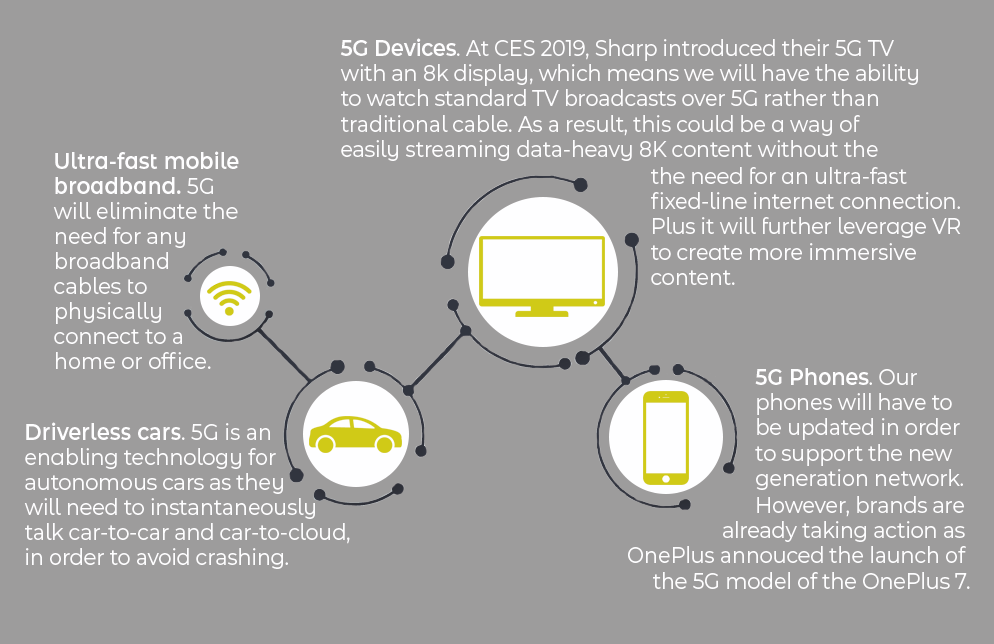16 May 2019
Since 2018, 5G has been a key topic in the tech industry and has gained extensive news coverage. From reported concerns of 5G mobile radiation, to several countries banning Huawei from developing core 5G networks due to national security fears, it can be easily confusing as to what 5G actually is and how it will affect you.
However, in this article we demystify the world of 5G by explaining what it actually is, how it differs from 4G and wen you can expect it to roll out in the UK.
What is 5G?
5G is the fifth generation of mobile networks and is the successor of 4G and 3G, which the majority of today’s networks currently operate on. It is frequently regarded as the ‘network of networks’ because of its ability to amalgamate various existing and future networks, including the current advanced LTE (4G) network.
How will 5G be different?
5G is set to be much faster and more reliable with lower latency compared to its predecessors. The below infographic highlights the changes and opportunities which 5G presents:

When will 5G roll out in the UK?
EE have made the first steps towards the rollout of 5G as they launched their network on 30th May. Likewise, Vodafone recently said that they will launch their network on 3rd July .
We’re yet to hear any more from the rest of the ‘big four’ mobile operators, but it is expected that they will follow suit very soon this summer.
| Mobile Operator | Launch Cities | Updates |
|---|---|---|
| Vodafone | Birmingham, Bristol, Cardiff, Glasgow, Liverpool, London, Manchester, Portsmouth, Southampton, Stoke and Wolverhampton. | Vodafone 5G updates. |
| O2 | Belfast, Cardiff, Edinburgh and London. | O2 5G updates. |
| EE | Cardiff, Edinburgh, Belfast, Birmingham, London and Manchester. | EE 5G updates. |
| Three | Not confirmed. | Three 5G updates. |
Has 5G launched anywhere else in the world?
Yes, but to a limited extent. For example, like the UK, the USA have taken baby steps towards customers testing 5G. In April, Verizon began to deploy its network in parts of Chicago and Minneapolis but with a catch – users will need a 5G-ready phone. At this point in time, users have access to only one ready device as well as be prepared to pay an additional $10 per month. Similarly, in South Korea, mobile operators are also rolling out 5G with limited coverage.
